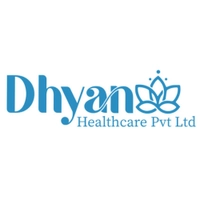Introduction
A stroke, also known as a cerebrovascular accident (CVA), is a medical emergency that occurs when blood flow to part of the brain is disrupted, leading to brain cell damage and potential disability or death. At Dhyan Healthcare, we understand the urgency of stroke management and the importance of prompt treatment to minimize complications and improve outcomes.
What is a Stroke?
A stroke occurs when blood flow to the brain is interrupted, either due to a blockage (ischemic stroke) or bleeding (hemorrhagic stroke). This deprives brain cells of oxygen and nutrients, leading to cell death within minutes. Strokes can vary in severity, ranging from mild to severe, and can cause a wide range of symptoms depending on the part of the brain affected.
Causes and Risk Factors
Several factors can increase the risk of stroke, including:
- High Blood Pressure (Hypertension): The leading risk factor for stroke.
- Smoking: Increases the risk of blood clots and narrowing of blood vessels.
- Diabetes: Increases the risk of cardiovascular disease, including stroke.
- High Cholesterol: Increases the risk of plaque buildup in blood vessels.
- Obesity: Increases the risk of high blood pressure, diabetes, and heart disease.
- Physical Inactivity: Lack of exercise can lead to obesity and other risk factors for stroke.
- Family History: Having a family history of stroke or cardiovascular disease increases the risk.
- Age: Risk increases with age, particularly after 55 years.
- Gender: Men have a higher risk of stroke, but women are more likely to die from stroke.
- Race and Ethnicity: African Americans, Hispanics, and Asian/Pacific Islanders have a higher risk of stroke.
Symptoms
The symptoms of stroke can vary depending on the type of stroke and the part of the brain affected, but common symptoms include:
- Sudden Weakness or Numbness: Especially on one side of the body.
- Sudden Confusion or Trouble Speaking: Slurred speech or difficulty understanding speech.
- Sudden Vision Changes: Blurred or double vision.
- Sudden Severe Headache: Especially with no known cause.
- Sudden Trouble Walking or Dizziness: Loss of balance or coordination.
Diagnosis
Diagnosing a stroke involves:
- Medical History and Physical Examination: Your healthcare provider will review your symptoms and medical history and perform a physical examination to assess neurological function.
- Imaging Tests: Imaging tests such as CT scan or MRI may be ordered to visualize the brain and identify areas of damage.
- Blood Tests: Blood tests may be performed to assess for risk factors such as high cholesterol or diabetes.
Treatment Options
The treatment for stroke depends on the type of stroke and the time since symptoms began. Treatment options may include:
- Clot-Busting Medications:
- Tissue plasminogen activator (tPA) may be administered intravenously to dissolve blood clots and restore blood flow in ischemic strokes.
- Anticoagulant or Antiplatelet Medications:
- Medications such as aspirin or heparin may be prescribed to prevent blood clots from forming or growing larger.
- Mechanical Thrombectomy:
- A procedure to remove blood clots from the brain using a catheter-based device.
- Surgery:
- Surgery may be necessary to repair damaged blood vessels or reduce pressure on the brain in cases of hemorrhagic stroke.
Post-treatment Care and Prevention
Effective post-treatment care and prevention strategies for stroke include:
- Medication Compliance: Take prescribed medications as directed to prevent recurrent strokes.
- Lifestyle Modifications: Adopt a healthy lifestyle, including regular exercise, a balanced diet, and avoiding smoking and excessive alcohol consumption.
- Blood Pressure Management: Keep blood pressure under control through lifestyle changes and medication.
- Regular Monitoring: Attend regular follow-up appointments with your healthcare provider to monitor progress and adjust treatment as needed.
Prescription for Managing Stroke
To effectively manage stroke and promote recovery, we recommend the following prescription:
- Immediate Medical Attention: Seek emergency medical care if you or someone else experiences symptoms of stroke.
- Lifestyle Modifications: Adopt a healthy lifestyle, including regular exercise, a balanced diet, and avoiding smoking and excessive alcohol consumption.
- Medication Compliance: Take prescribed medications as directed to prevent recurrent strokes.
- Regular Follow-up: Attend regular follow-up appointments with your healthcare provider to monitor progress and adjust treatment as needed.
Conclusion
A stroke is a medical emergency that requires prompt recognition and treatment to minimize brain damage and improve outcomes. At Dhyan Healthcare, we are dedicated to providing comprehensive care and support for individuals affected by stroke, ensuring timely intervention and effective management to reduce disability and improve quality of life.
For more information or to schedule a consultation, please visit our website or contact our clinic. Our team of experienced healthcare professionals is here to help you effectively manage stroke and optimize your recovery.


